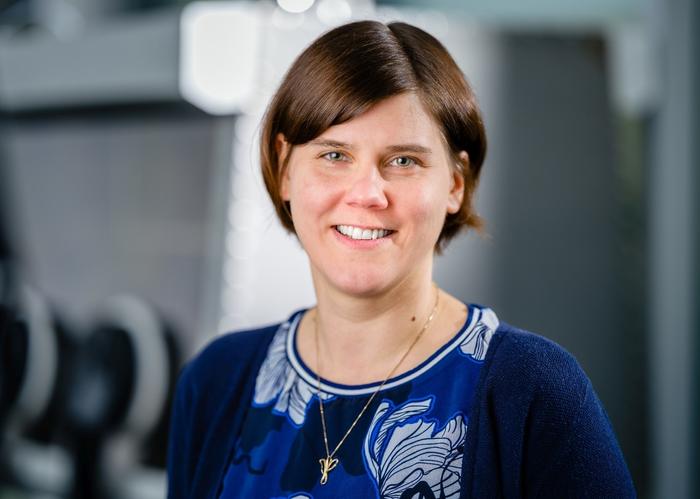Prof. Dr. Nina Huittinen
Field of Radiochemistry
What have you done in your professional life so far?
As a radiochemist, I have contaminated and decontaminated various lab equipment, I have worn a gasmask and lead apron at the same time, and I have fallen asleep in a whole-body counter. On a more serious note: I have taught chemistry or radiochemistry in two different countries, at four different universities in four different languages. I have worked in Finnish and German national projects related to spent nuclear fuel disposal safety. My connection to Germany started already in 2005, as an Erasmus student at the University of Heidelberg. I returned several times to Germany during my Ph.D. and having finished my Ph.D. at the University of Helsinki in 2013, I started as a postdoc at the Institute of Resource Ecology at the Helmholtz-Zentrum Dresden-Rossendorf. There I continued my scientific career as a research associate, and later became a group leader. Now I am at the Freie Universität Berlin. My move to Germany has in other words become much more permanent than I ever anticipated when I packed my bags almost 11 years ago.
What appeals to you about your new position?
I don’t have to share my office with anyone! On top of that, I get to be in the middle of the university life again with all its perks and the liveliness. Although I have been teaching for many years at the Technische Universität Dresden, it is a different thing to be employed directly at a university again. I like the scientific exchange, the breadth of scientific topics “under one roof” and standing in the lecture hall in front of young students from all over the world.
What do you love about your job?
The excitement when something unexpected, novel, strange, unpredictable happens – anything that makes the eyes of a student or scientist sparkle – might be an unusually stable Pu(V) stock solution (which is supposed to disproportionate), or a miscibility gap where there shouldn’t be one, or the very first luminescence spectrum ever recorded from some nuclear-relevant material. Sometimes “minor revisions” does the trick.
Which task could you gladly do without in your job, but of course you always do it conscientiously?
The ever-growing bureaucracy.
How can your research be applied?
A large part of the research that I have been involved in deals with reactions of actinides in a geochemical setting, in contact with mineral surfaces, in the aqueous phase in the presence of strong inorganic ligands and so forth. This is to better understand the behavior of actinides in future underground nuclear waste disposal sites, should they ever get released from the waste matrix and the containers housing the spent fuel elements. One application of the research is thereby related to the safety case of such nuclear waste storage sites.
In the last years, my research has focused on crystalline ceramic phases that could be used as waste forms for specific radioactive waste streams. We have tried to gain a very global understanding of such crystalline host matrices, combining structural investigations with studies addressing their radiation tolerance, high-pressure and high-temperature behavior, and their chemical durability.
What should people know about your personal life?
I am a Finn. The stereotypical Finn is not very talkative or open. I’d describe myself rather the opposite, but I do possess some very typical Finnish characteristics; I love the sauna, I own a summer cottage, and I listen to metal music. I don’t like ice cream (which has nothing to do with being a Finn, it’s just weird)!
What person or personality has influenced you, how and why?
There is no one person whom I could name. It is the combination of family, friends, teachers, tutors, neighbors, trainers, acquaintances that have shaped me as a person. I had good chemistry and physics teachers in high school, a very eye-opening exchange year in South Africa where I noticed that science is something that I seem to comprehend rather well, and parents who did not push me in any direction but who let me try out different things. These persons and events certainly influenced my decision to start studying chemistry and yet others have contributed to me staying on this path and embracing it. Some fictive characters may have played a role in my career choice as well. Like MacGyver: finding a solution to every problem, sometimes with a piece of gum or duct tape.
